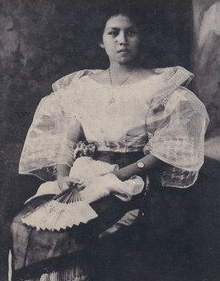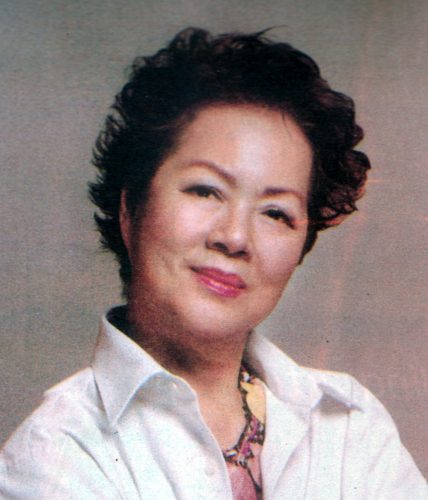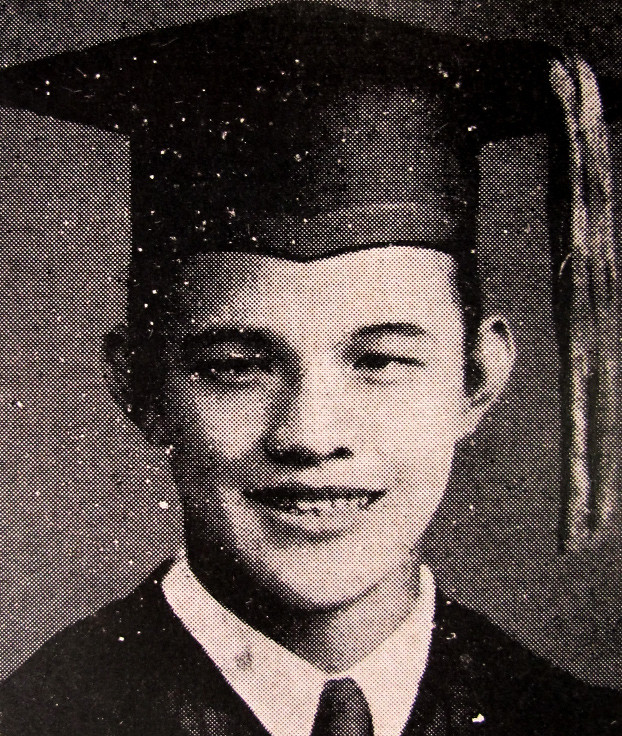
Born to the prominent Marquez family of Quezon Province, Marquez Benitez belonged to the first generation of Filipinos trained in the American educational system. She was a member of the first freshman class of the University of the Philippines, graduating with a Bachelor of Arts degree in 1912. She taught at the University’s English department from 1916 to 1951, acquiring a reputation as an outstanding teacher. Among her students were Loreto Paras Sulit, Paz Latorena, Bienvenido Santos, Manuel Arguilla, S.P. Lopez and National Artist Francisco Arcellana, who later emphatically declared, “She was the mother of us all!”
Among ALIWW’s prized exhibits are the journals of Paz Marquez Benitez, which are inscribed in two hard-bound volumes. The entries, written by hand in both pencil and ink, date from 1924 and extend for an as yet undetermined number of years. Of special interest to literary scholars are her notes on the tentative plot and setting of her short story, “Dead Stars.” This story, first published in 1925 and regularly anthologized since, is considered the first modern short story written in English by a Filipino.
(Source: http://rizal.lib.admu.edu.ph/aliww/english_pmbenitez.html)
Vocabulary:
long table - marriage
azotea - a flat roof or platform on the top of a house or other building.
azotea - a flat roof or platform on the top of a house or other building.
perfervid - intense and impassioned.
tumultuous - making an uproar or loud, confused noise.recalcitrant - having an obstinately uncooperative attitude towards authority or discipline.(this word was used to describe his hair, so it is possible that his hair is messy.)
desultory - lacking a plan, purpose, or enthusiasm.
filigree - ornamental work of fine (typically gold or silver) wire formed into delicate tracery.
Characters:
Alfredo Salazar - the main character of the story. He was engaged with Esperanza for nearly 4 years. However, he also felt attracted to Julia Salas.
Julia Salas - the sister-in-law of Judge De Valle. She was described as a beautiful and cheerful person, especially when she talked with Alfredo. She may have fallen in love with Alfredo in the story.
Esperanza - The fiance of Alfredo. For four years, she has never been involved in any romantic relationships aside from Alfredo. She was described as someone who shows traces of old age, yet is elegant and not an average woman.
Carmen - The sister of Alfredo
Don Julian - The father of Alfredo
Judge De Valle - brother-in-law of Julia, and a close friend of Don Julian
Donya Adela - sister of Julia. She was described as short and plump.
Calixta - note carrier of Esperanza
Vicente - husband of Carmen (was mentioned when Carmen and Adela were conversing with each other.)
Dionisio - husband of Donya Adela (was also mentioned when Carmen and Adela were conversing with each other.)
Brigida Samuy - the woman that Alfredo was looking for when he went to Sta. Cruz
Setting
Throughout the story, different places were used, such as the home of Judge de Valle, the home of Don Julian, the coconut plantation, Calle Real, and Calle Luz, which is where Julia lived. We can assume that the story was set during 1925, the time when the story was published. This is because of the usage of words, which shows the influence of Spanish culture to our language.
PLOT
Exposition
This part introduces Alfredo Salazar and his relationship with Esperanza. In the first part of the story, Carmen and Don Julian were talking about how Alfredo was not yet decided in marrying Esperanza, even though they have been engaged for several years. Esperanza would like to have their marriage a month after. Alfredo was then invited once to the house of Judge De Valle, and this is where he meets Julia Salazar
Rising Action
The conflict starts with the interaction of Alfredo and Julia, and how their relationship grows more intimate as time goes by. Their closeness have reached to a point where Alfredo looks forward to visiting Julia than spending time with Esperanza. Alfredo then tries to express his attraction to Julia when Judge de Valle was invited to a coconut plantation by Don Julian. However, Alfredo learned that Julia will be returning to her hometown, and that their meeting in the coconut plantation might be the last. They then say their farewells
Climax
The climax starts when surprisingly, Alfredo saw Julia within the plaza. He approached her, only to learn that Julia discovered his engagement with Esperanza. She then congratulates Alfredo. Alfredo was confused with his own emotions, since he believes that he has fallen in love with Julia, but he cannot ignore that he was engaged with Esperanza. When they parted ways, he overheard Esperanza talking about their note-taker, who was living with a man whom she is not married with. She expresses her disapproval, to which Alfredo tried to refute. However, the argument heated and Esperanza revealed that she actually knew what was happening between Alfredo and Julia. She dared Alfredo to leave her, and Alfredo was made to choose.
Falling Action
Years pass, and it was shown in the story that Alfredo has chosen Esperanza, because he was worried about how the society may view him and Esperanza. However, their relationship was far from perfect. Their relationship was only driven by sense of responsibility, and not by love. Alfredo went to the hometown of Julia for his job as a lawyer. It was seen that he was still imagining a life with Julia. He found out about the home of Julia and went there.
Ending
When he arrived in Julia's home and saw her, he believed that something was missing (from either her or him). He then realizes after holding her hand that he cannot feel anything anymore, and the he was clinging to a dream that was already lost. With this, he realized that it was already over for the both of them.
Symbolism
The story "Dead Stars" has made use of a writing style which isn't straight to the point, and uses flowery language to describe something.
The character of Alfredo represents how men are easily swayed by their emotions. This was shown throughout the story, wherein he had second thoughts about marrying Esperanza just because he met another woman. His indecisiveness due to believing that he fell in love with Julia caused him to ruin another one of his relationships.
Esperanza following the Lady of Sorrows may symbolize what she was feeling throughout the story. As we read the story, it was revealed that Esperanza waited for a long time for Alfredo, yet Alfredo wasn't decided if he will or will not marry Esperanza. What's more, it was also revealed that she knew about Alfredo and Julia. She may have known for a long time, and yet she never showed her feelings until she confronted Alfredo. These may have caused her a great deal of loneliness, which continued even when she got married to Alfredo.
"...he had been seeing
the light of dead stars, long extinguished, yet
seemingly still in their appointed places in the
heavens."
I believe that this line represents how both Julia and Alfredo had been clinging to a lost dream. In the story, before he met Julia again, Alfredo was thinking about how his life would have gone if he married Julia. It was also known that Julia did not marry anyone for several years. I believe that this was something that was on his mind even when he got married to Esperanza, yet when he met Julia, he realized that he doesn't feel anything for her anymore. I believe that this was what he thought was missing when he met Julia again: love. And when he realized that he doesn't love her anymore, he already knew that these dreams were over. It was something that he was looking up to, but he never knew that it was already dead.
The ending was somewhat saddening, since we have realized that while Alfredo had a cold relationship with Esperanza because of what he believes is his love for Julia, he then realizes that this love doesn't exist anymore. It feels like because of his so-called "love" for Julia, he threw his other relationships, only to realize that being with her is already a long lost dream.

